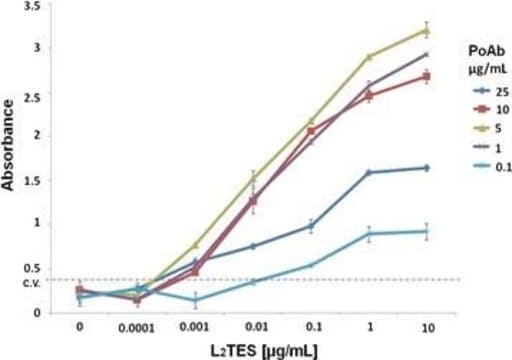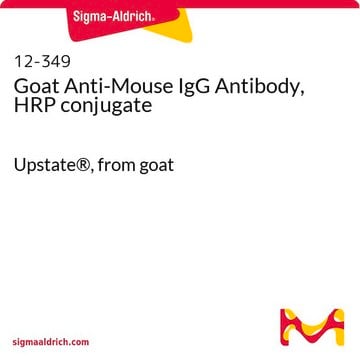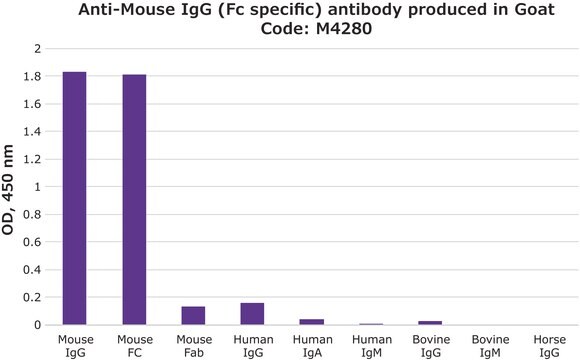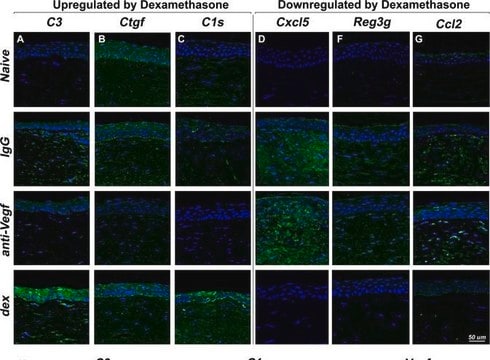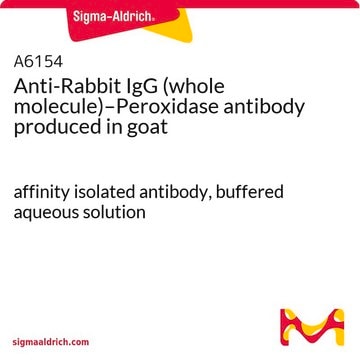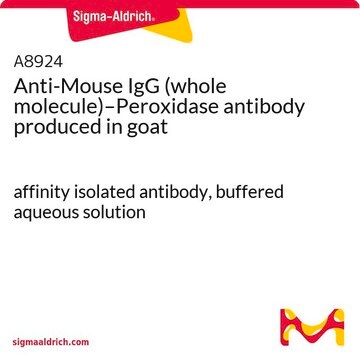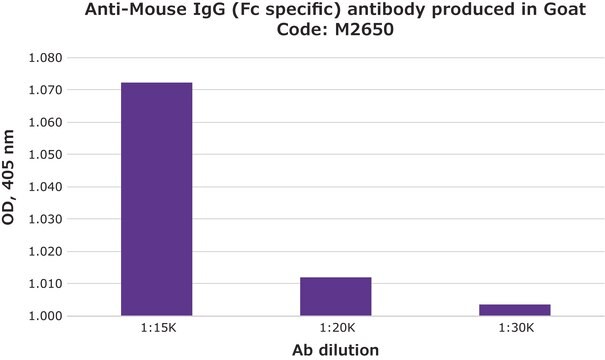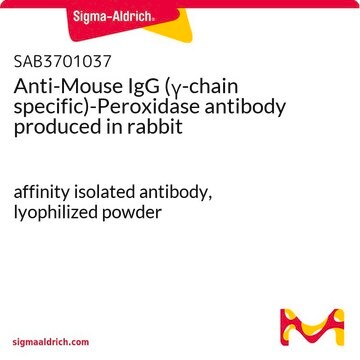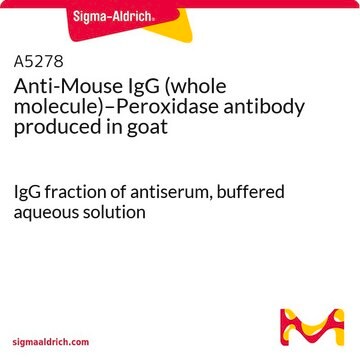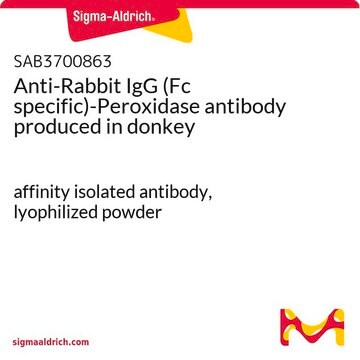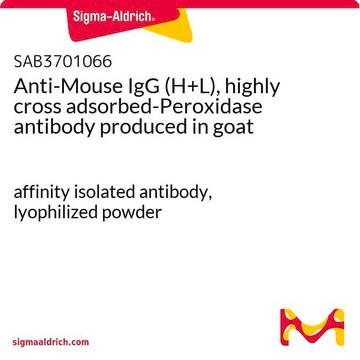A0168
Anti-Mouse IgG (Fc specific)–Peroxidase antibody produced in goat
affinity isolated antibody
Synonym(s):
Goat Anti-Mouse IgG (Fc specific)–HRP
About This Item
Recommended Products
biological source
goat
Quality Level
conjugate
peroxidase conjugate
antibody form
affinity isolated antibody
antibody product type
secondary antibodies
clone
polyclonal
species reactivity
mouse
technique(s)
direct ELISA: 1:50,000
immunocytochemistry: suitable
immunohistochemistry (formalin-fixed, paraffin-embedded sections): 1:100
western blot: 1:80,000-1:160,000 using total cell extract of HeLa cells (5-10 μg per well
shipped in
dry ice
storage temp.
−20°C
target post-translational modification
unmodified
Looking for similar products? Visit Product Comparison Guide
Related Categories
General description
Antibody is isolated from goat anti-mouse IgG antiserum by immunospecific purification to remove essentially all goat serum proteins, including immunoglobulins that do not specifically bind to the Fc fragment of mouse IgG. Anti-Mouse IgG is conjugated to peroxidase by protein cross linking with 0.2% glutaraldehyde. The antibody preparation is solid phase adsorbed with human IgG to ensure minimal cross reactivity in tissue or cell preparations.
Immunogen
Application
- western blot
- enzyme linked immunosorbent assay (ELISA) and
- indirect immunoperoxidase assay (IIPA)
Physical form
Preparation Note
Disclaimer
Not finding the right product?
Try our Product Selector Tool.
Signal Word
Warning
Hazard Statements
Precautionary Statements
Hazard Classifications
Skin Sens. 1
Storage Class Code
12 - Non Combustible Liquids
WGK
WGK 2
Flash Point(F)
Not applicable
Flash Point(C)
Not applicable
Choose from one of the most recent versions:
Certificates of Analysis (COA)
Don't see the Right Version?
If you require a particular version, you can look up a specific certificate by the Lot or Batch number.
Already Own This Product?
Find documentation for the products that you have recently purchased in the Document Library.
Customers Also Viewed
Articles
Review the key factors that should figure in your decision to choose a secondary antibody. Learn about species, subclass, isotype, label, and more.
Our team of scientists has experience in all areas of research including Life Science, Material Science, Chemical Synthesis, Chromatography, Analytical and many others.
Contact Technical Service
